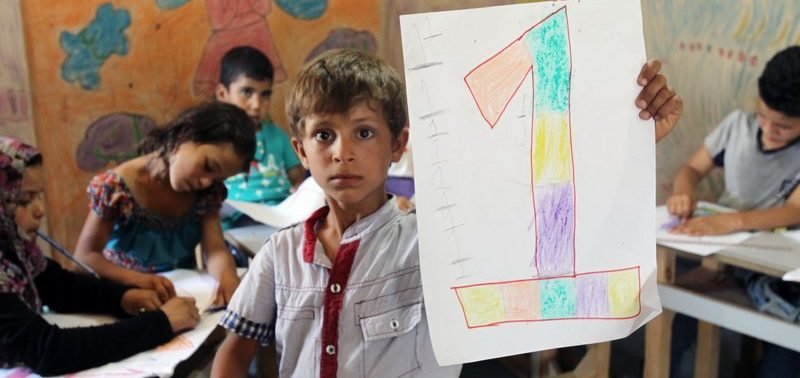SYRIA AND SYRIANS
The Asfari Foundation supported various projects and scholarships for Syrians well before the uprising of 2011. Since the uprising, the violent suppression of that uprising and the devastating crisis that followed, more than 470,000[1] Syrians have been killed and over 11m[2] people have been forced to flee their homes.
Over 5.6m[3] Syrians have fled to neighbouring countries which are overwhelmed; many have subsequently fled to Europe or beyond at great risk of their lives to find security, livelihoods and education. More than 11.7m[4] people inside Syria are in desperate need of assistance and face the danger of airstrikes, sieges, extreme poverty, kidnap and imprisonment. The Foundation’s support to Syria is more needed than ever. We will continue to work with Syrians in the neighbouring countries, and diaspora, to help them survive and overcome their personal losses and those of their country, we will educate young people and we will help build a resilient Syrian civil society so that eventually Syrians will be able to return and rebuild the peaceful, united, tolerant and productive Syria that its citizens and the Asfari Foundation envisage.
Through our partners, we will in certain circumstances support provision of basic humanitarian support in the neighbouring countries of Lebanon and Jordan through Relief grants (not open to application).
Above all, however, we aim to look at current needs as well as those of Syria’s future. We give grants to organisations that support young Syrians based in neighbouring countries and the global diaspora, to access to secondary, vocational and higher education, and employment.
The Asfari Foundation is much encouraged by the very impressive Syrian civil society that has emerged since the crisis started: young, creative, courageous and innovative, these young organisations work on a range of issues, from emergency services to women’s education, and from arts to human rights, throughout Syria and in neighbouring countries. These organisations create cohesion and solidarity in a society torn apart and are well placed to assess and address local needs. We will continue to support civil society in its efforts to provide relief to fellow Syrians, and to showcase the work of Syrian civil society and elevate their voices and their vision for the future of their country to a global audience.
We believe this is one of the best ways to deliver aid to Syrians in need, and that this is also an investment in the future of Syria because these organisations will form the cornerstone of the democratic Syria its citizens envisage.
[1] Confronting Fragmentation, Syrian Center for Policy Research, February 2016 (https://www.scpr-syria.org/confronting-fragmentation/, accessed 24 April 2019).
[2] Includes Syrian refugees and internally displaced persons. UNHCR (https://www.unhcr.org/en-us/syria-emergency.html?query=syria, accessed 24 April 2019).
[3] UNHCR, Government of Turkey, 11 April 2019 (https://data2.unhcr.org/en/situations/syria#_ga=2.34514465.1220641923.1556110809-22774378.1555406513, accessed 24 April 2019).
[4] Syrian Arab Republic Humanitarian Needs Overview, UN Office for the Coordination of Humanitarian Affairs (UNOCHR), 2019 (https://hno-syria.org/#home, accessed 24 April 2019).

